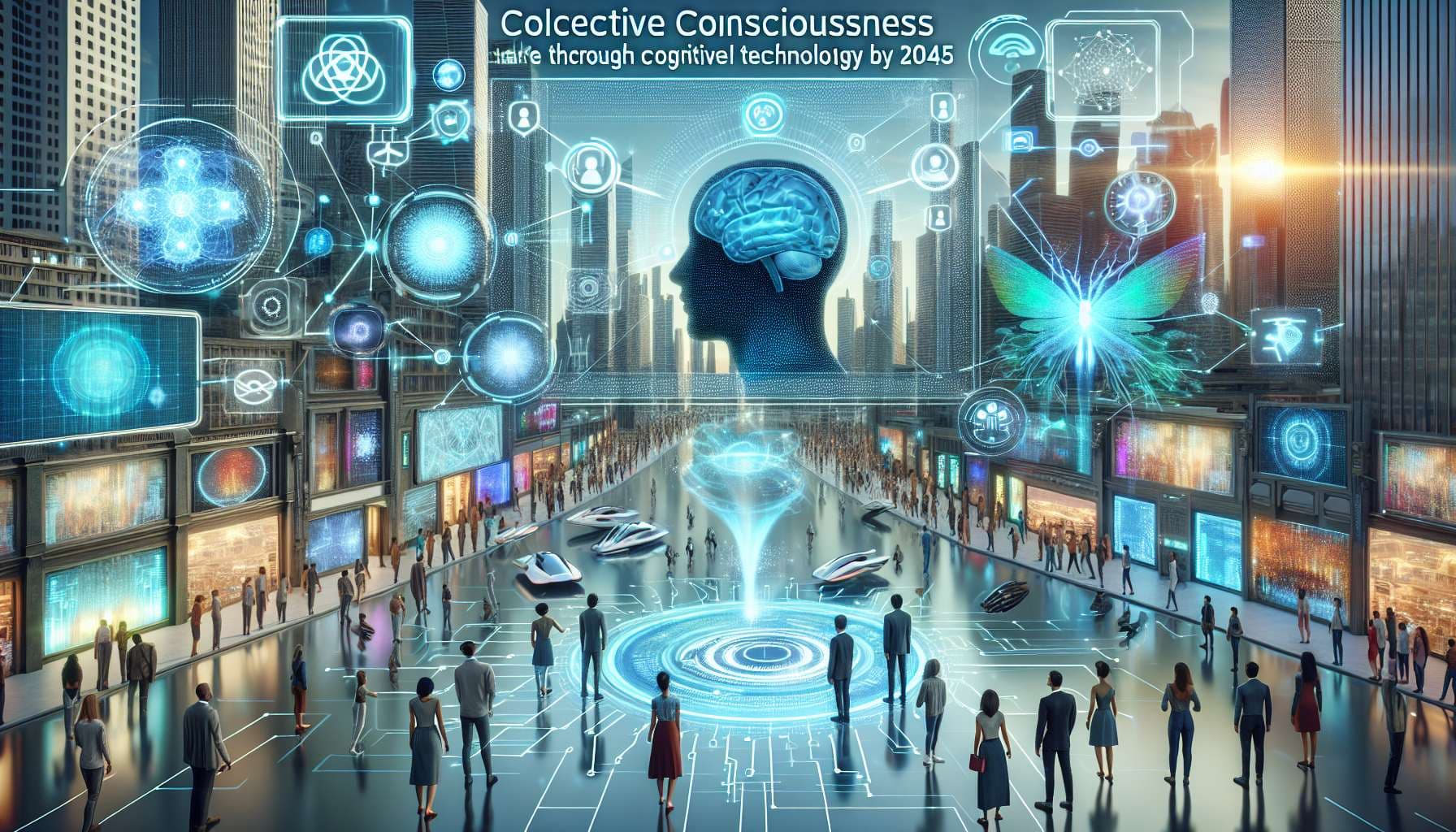
By 2045, will advancements in technology enable individuals to collectively experience a form of consciousness that transcends individual minds?
Shared cognitive technology refers to advancements in tools or systems that allow individuals to interact and collaborate in ways that augment their cognitive abilities, potentially leading to a shared understanding or awareness beyond individual minds, leading to shared insights, emotions, or experiences.
To qualify as collective consciouness, the augmentation should allow shared cognitive capabilities beyond simply shared sensing experience. Instead, it should involve the actual merging of the consciousness of multiple individuals, bluring the lines between individuals minds and allowing experience of a shared feeling and cognition. This merging should lead to every participant experiencing a state akin to a singular cognitive entity.
The conscious experience would in this case imply the casual experiencing of emotions, state of mind, cognition, reliable knowledge retrival, regular experience of self.
That's a very big think market you've made so I want to test how low concept you'll tolerate for a YES resolution.
Is consciousness of the sensation of a pinprick shock administered to the brain which is delivered to everyone at 00:00 UTC considered a collective conscious experience? If that's too low you can add how the shock is experienced emotionally as a niggle everyone with the wetware experiences at once, causing a global consciousness niggling that everyone shares.
How are you going to evaluate the resolution of this market? There's no widespread definition of what consciousness is. You could also well claim that there's already some level of collective consciousness both among closely related individuals (empathy) and at societal level (for examples Americans self identify as such). Obviously the line that separates two societies is much more blurred than the line that separates two human beings. But you can well claim that even each brain hemisphere has some kind of self consciousness. The line that separates a conscious being from another is actually really blurred. A lot of interesting thoughts on this in the book I am A Strange Loop, by Douglas Hofstadter.
Here are some resolution cases examples that could help you grasp my views. Some of them rely on optimistic hypothetical cases where science understanding of consciousness in the future make the resolution easier. Some of them imply scientific testing of a large number of groups of individuals equiped with the 'shared cognitive technology'.
I would define consciousness as the casual experiencing of emotions, state of mind, cognition, reliable knowledge retrival, regular experience of self. I will call the sum of participants equiped with the 'shared cognitive technology', the 'common hardware'.
Case 1 : Consciousness is proven 'hardware emergent' therefore not dualistic and requirement are known and reproductible. We then manage to create the device that replicate the requirements and can reliably quantify the consciousness emergence phenomena using new knowledge and 'common hardware'. => YES.
Case 2 : Consciousness is proven 'hardware emergent' therefore not dualistic and requirement are known and reproductible. We then manage to create the device that replicate the requirements but cannot reliably quantify the consciousness emergence phenomena, we can then test sharing of every single of : emotions, state of mind, cognition, knowledge retrival, common experience of self by testing various perturbation to the 'common hardware' (sensorial one sided inputs) and collecting result on participants on the other side. If results suggest we have strong correlation between individuals reports across all tests thanks to device => YES.
Case 3 : Consciousness is somehow proven dualistic therefore not 'hardware emergent'. There is then no possibility of altering it with a new 'common hardware' setup => NO.
Case 4 : We don't know much more about consciousness by 2045, but somehow succeed in creating what resemble a reliable consciousness emergence phenomena out of a 'common hardware'. We don't have a clue on how to quantify it but can then test sharing of every single of : emotions, state of mind, cognition, knowledge retrival, common experience of self by testing various perturbation to the overall hardware (sensorial one sided inputs) and collecting result on participants at the other side. If results suggest we have strong correlation between individuals reports across all tests thanks to device => YES.